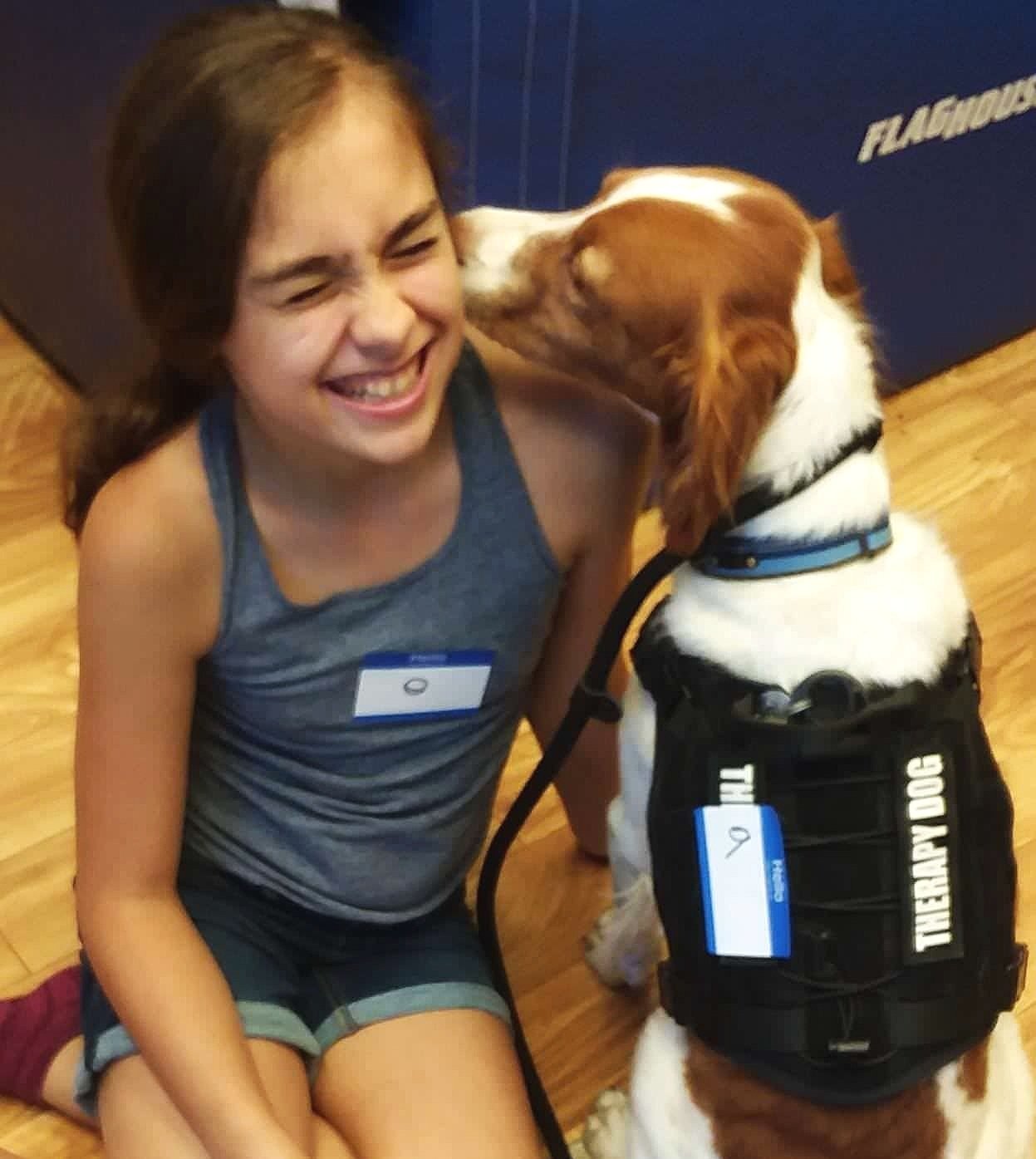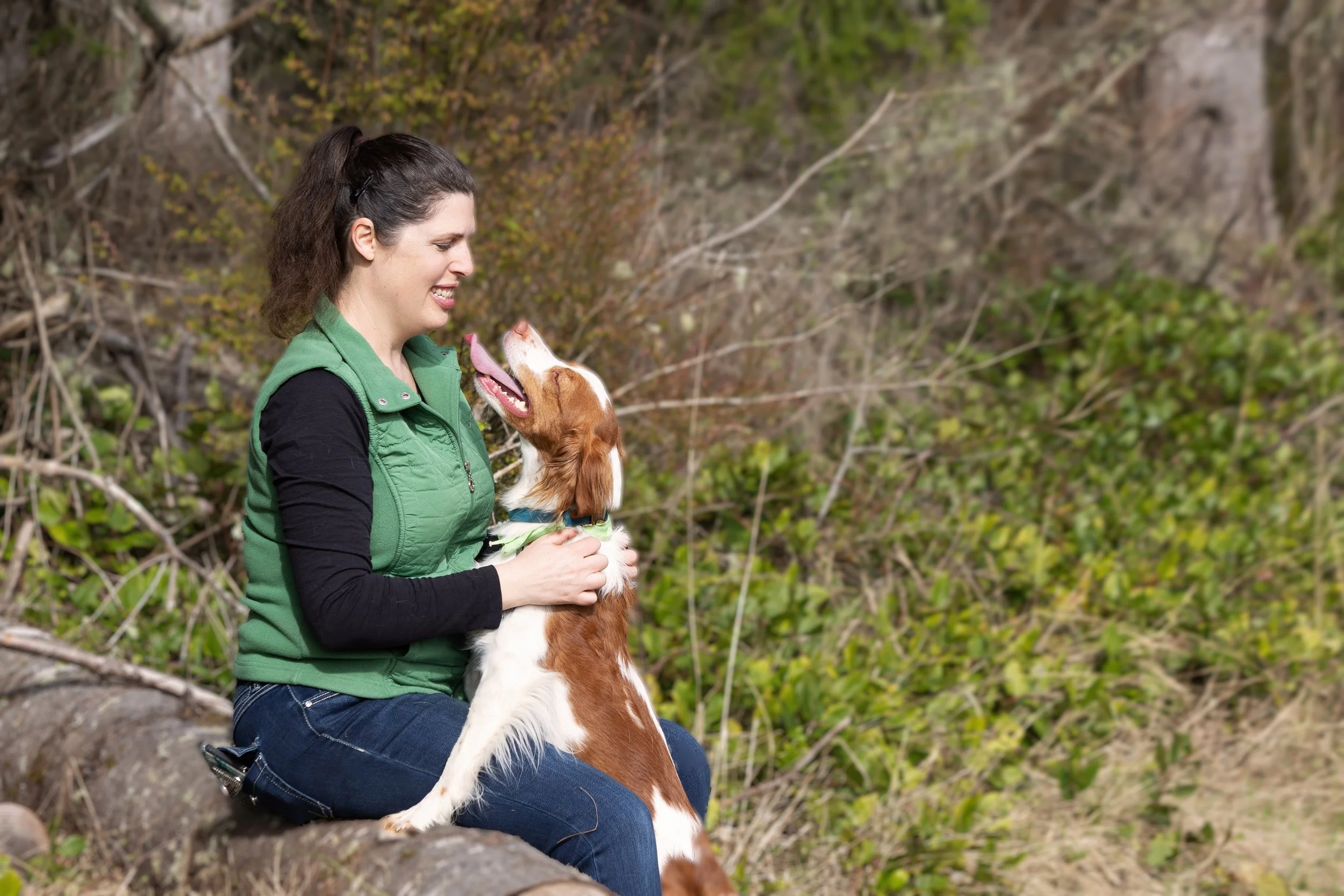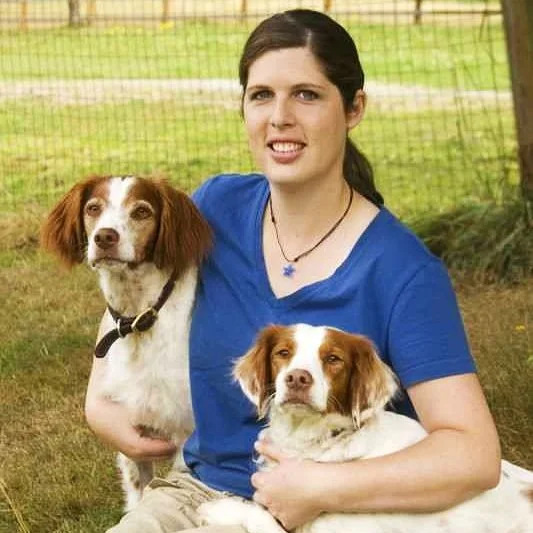From Concept to Reality—The Creation of “Paws for Progress”
I’ve always been a bit different…and I actually like that about myself.
So when people in my life off-handedly dismissed my idea of writing a book about animal-assisted speech therapy, it didn’t stop me from trying.
Contrary?
Oppositional?
A “drive for autonomy”?
Call it what you like, I’ve just always been one to pursue my interests come what may. And guess what…I’m a new author!!!
Paws for Progress: Integrating Animal-Assisted Interventions into Your Speech-Language Pathology Practice was a two-year process. In book publishing that’s actually pretty quick.
Here’s three critical factors I found in moving from rough ideas to a finished product:
Before retiring, speech therapy dog Johnny Utah was pivotal in helping me develop animal-assisted intervention skills. He was always willing to try new activities with kids!
If you click a link it may be an affiliate link and I will earn a small commission if you purchase. It doesn’t cost you anything extra. If I don’t use and love a product you won’t find it here!
#1 Finding a publisher that shared my vision for animal-assisted speech therapy
I was rejected by eight publishers. Eight! Each said the topic was too niche and/or not evidence-based enough (ignoring clinical expertise and client perspectives, two of the three sides of ASHA’s evidence-based practice triangle).
ASHA Press, however, welcomed the idea and had a vision for expanding my rough collection of essays into a cohesive and comprehensive manual.
They knew what other speech-language pathologists would need to know and provided guidelines for how to expand the content I had already created, such as adding a section on multicultural considerations and giving explicit lesson plans for therapy activities.
And they encouraged me to be open in sharing my experiences not only as a speech therapist, but as a human with real emotions and struggles.
Of course, it didn’t hurt that everyone on the team I directly worked with were dog owners themselves! They understood the impact of the human-animal bond through lived experience and helped me bring the importance of that concept to the forefront.
#2 Finding a supportive community of animal-assisted interventionists and coaches
Sharing the training journey of new speech therapy dog Sky helped me connect with a virtual support network of other animal-assisted interventionists.
Since my immediate circle of SLP colleagues were disinterested in helping me deep-dive (i.e., obsess) on the topic of therapy dogs, I had to turn to other sources for a sense of belonging and encouragement.
Initially resistant to adding social media to my life, business coaching from Hannah Boeck at Cued Creative showed me not only the how-to but the why behind creating my own virtual circle of support.
I was elated to find other clinicians and volunteers living the reality of providing animal-assisted interventions in a variety of settings and with different delivery models.
They got it, and they got me.
When the editing process felt overwhelming or imposter syndrome set in, I had a team of people who kept telling me how much this book was needed.
And Hannah’s enthusiasm as my business coach keep me motivated to spread my hard-earned knowledge through blogs and developing a course for other SLPs (stay tuned)!
#3. Finding my muses
Of course this book wouldn’t even exist without my dogs! They taught me through both joy and frustration what animal-assisted speech therapy can look like.
As you read Paws for Progress you’ll get to see how Delta, Johnny Utah, and Bodhi each brought their own personality, strengths, and weaknesses to teaching me this work.
Speech therapy dog extraordinaire Delta (left) inspired many of the activities in Paws for Progress. Little brother Bodhi enjoyed a brief career but ultimately wasn’t well suited for animal-assisted therapy, finding his niche as a service animal instead but teaching me so much in the process.
Though little Sky was not in the picture by the time major edits were in, working with her has shaped the blogs and social media I’ve since created and in some ways she is a culmination of everything included in the book.
She’s also the darling face peering from the cover!
I’d be remiss not to mention Harvey, the first dog of my very own, as he impacted the eventual development of my animal-assisted intervention skills as well. I brought him to the University of Washington speech clinic as part of my adult neurogenic graduate student practicum and later for special visits to the preschool classroom in which I worked.
Harvey also made frequent appearances in therapy materials I developed early in my career, which would now be called Animal-Related Engagement but at the time were just something fun to create.
My first Brittany spaniels, Harvey (left) and Gia (right). Harvey would have made an excellent speech therapy dog if more information about animal-assisted therapy had been available to me at the time.
I regret listening to a trainer who specialized in volunteer nursing home visits who told me he was too energetic for therapy dog work. I know now she didn’t understand that different populations have different needs and a professional office-based role is different from a visiting volunteer role for a therapy animal.
So if you’ve every had an idea you feel passionate about, go for it! Find your support wherever that lies and don’t be afraid to challenge the nay-sayers.
And if you’re interested in learning more about animal-assisted therapy, Paws for Progress: Integrating Animal-Assisted Interventions Into Your Speech-Language Pathology Practices is AVAILABLE SEPTEMBER 27TH!
I hope you enjoy reading it as much as I enjoyed creating it! Let me know what you think by contacting me here.
May your day be filled with puppy wiggles and children’s giggles,
Sharlet
Update Jan. ‘25: Once the book was out I couldn’t stop creating therapy dog materials!
Check out Talk to the Paw! Therapy Animal Inclusion in a Professional Setting. This 7+ hour online course is a self-paced deep-dive and has more than 70 video clips to show actual animal-assisted speech therapy in practice!





